This Fox Chase professor participates in the Undergraduate Summer Research Fellowship.
Learn more about Research Volunteering.
Related Articles
00 / 00

This Fox Chase professor participates in the Undergraduate Summer Research Fellowship.
Learn more about Research Volunteering.
Request an Appointment
Chair, Department of Clinical Genetics
Professor, Department of Clinical Genetics
Director, Gastrointestinal Risk Assessment
Co-Leader, Cancer Prevention and Control Program
NCCN, Genetic Colorectal/Colorectal Cancer Screening Panel Member
Liver, Gall Bladder & Bile Duct Cancer, Pancreatic Cancer, Esophageal Cancer, Neuroendocrine Tumors, Colorectal Cancer, Stomach (Gastric) Cancer, Appendix Cancer
I am a GI oncologist and a clinical cancer geneticist, and I have found over the years that my strongest skills are in helping my patients and their families to understand the complicated risks of cancer screening, surgery and treatment, to weigh the different options for treatment, and finally to develop a plan that is both in line with cutting edge research but also with their personal needs and preferences for their health and their lives. In cancer medicine, there is no longer a one size fits all approach, and in my practice I strive to build on my patients’ unique strengths and to further bring the multi-faceted expertise of my colleagues at Fox Chase and my colleagues nationally to offer each of my patients the best care I possibly can.
Since 1991, the Risk Assessment Program has received strong support from its clinical and research participants and referring providers. Over 11,000 patients have joined RAP’s registry and donated epidemiologic data and a biospecimen (~8,000 blood donations). This valuable resource is available to FCCC investigators and the wider genetics community and has generated significant grant support, publications, and presentations at national/international venues. RAP, the research component of the Department of Clinical Genetics, is part of the FCCC Cancer Prevention and Control (CPC) program. RAP maintains close collaborations with clinical, behavioral, and laboratory scientists with research interests in genetic risk and cancer prevention. RAP administers studies of the biological, genetic and environmental factors that influence cancer risk. RAP has established a unique registry of family data, blood, and tissue samples that is used to study the genetic basis of cancer. Our work is supported by funding from governmental, foundation, industry, and philanthropic sources and has contributed significantly to the field.
My group’s research is in three areas related to GI genetic risk and risk assessment. My primary syndrome of expertise and study is Lynch syndrome, but I have also performed research among all high risk GI patients, patients with hereditary breast/ovarian cancer and BRCA1/2 mutations, hereditary pancreatic cancer, high risk renal cell cancers, and others:

In 2019, at age 69, I was semi-retired. I was active and healthy and enjoying life with my husband, Harvey, in the suburbs of Philadelphia.

In January 2022, I listened to my body, and it may have saved my life. I initially went to the doctor because I had hemorrhoids that had been acting up for about a week. Not only was an over-the-counter medication not working, but I had also noticed a change in the color of my stool. Together, these were red flags that something wasn’t right.

Early in 2019, I started to experience an uncomfortable feeling whenever I sat down on a hard surface. Little things like riding my bike or just resting on a bench started to hurt a little. At first, it wasn’t that bad, so I just ignored it and hoped it would go away on its own.

Being defeated is a matter of perspective and will. I feel that no matter how serious the illness is, I can overcome it with the right help and the right attitude.
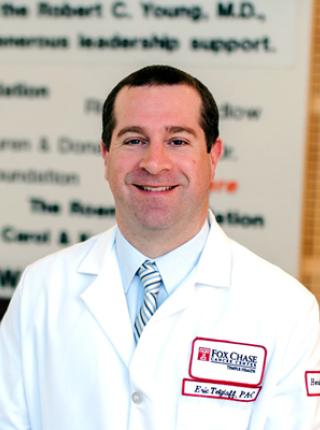
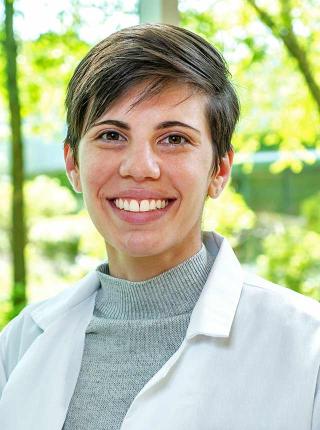
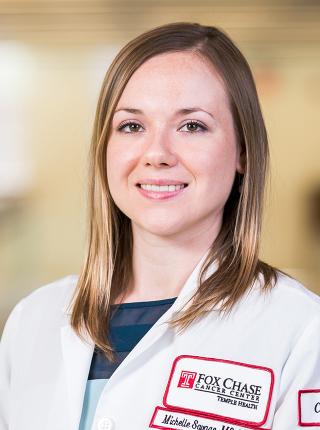

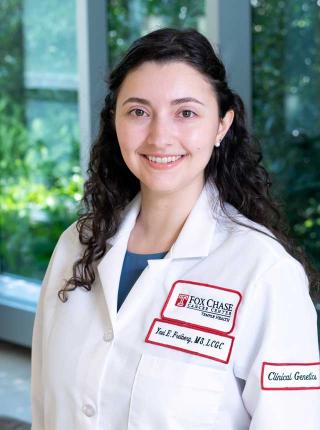
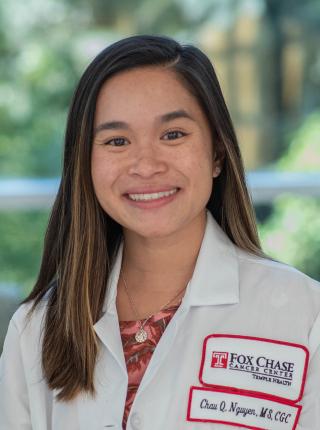
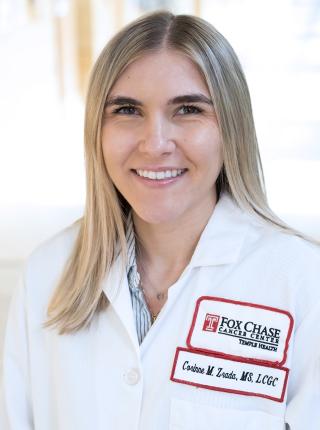
The following ratings and reviews are based on verified feedback collected from independently administered patient experience surveys. The ratings and comments submitted by patients reflect their own views and opinions. Patient identities are withheld to ensure confidentiality and privacy. Learn more about our Patient Experience Ratings.
Hall MJ et al. The COGENT study group. Use and patient reported outcomes of clinical multi-gene panel testing for cancer susceptibility in the multi-center Communication of Genetic Test Results by Telephone Study. JCO Precision Oncology.Dec.2018.00199.
Gray PN, Tsai P, Chen D, Wu S, Hoo J, Hall MJ, et al. TumorNext-Lynch-MMR: A Comprehensive Next Generation Sequencing Assay for the Detection of Germline and Somatic Mutations in Genes Associated with Mismatch Repair Deficiency and Lynch Syndrome. Oncotarget. 2018 Apr 17;9(29):20304-20322. PMID: 29755653; PMCID: PMC5945525.
Shaikh T, Handorf EA, Meyer JE, Hall MJ, Esnaola NF. Mismatch Repair Deficiency Testing in Patients with Colorectal Cancer and Nonadherence to Testing Guidelines in Young Adults. JAMA Oncol. 2018 Feb 8;4(2):e173580. PMID: 29121143; PMCID: PMC5838708.
Kurian AW, Hughes E, Handorf EA, Gutin, A, Allen B, Hartman AR, Hall, MJ. Breast and Ovarian Cancer Penetrance Estimates Derived from Germline Multiple –Gene Sequencing Results in Women. JCO Precision Oncology 2017. June 27.10.1200.00066.
Meyer JE, Cohen SJ, Ruth KJ, Sigurdson ER, Hall MJ. Young Age Increases Risk of Lymph Node Positivity in Early-Stage Rectal Cancer. J Natl Cancer Inst. 2016 Jan;108(1) PubMed PMID: 26719881; PubMed Central PMCID: PMC4715232
Arora S, Yan H, Cho I, Fan HY, Luo B, Gai X, Hall M, et al. Genetic Variants That Predispose to DNA Double-Strand Breaks in Lymphocytes from a Subset of Patients With Familial Colorectal Carcinomas. Gastroenterology. 2015 Dec;149(7):1872-1883.e9. doi: 10.1053/j.gastro.2015.08.052. Epub 2015 Sep 5. PMID: 26344056; PMCID: PMC4663158.
Guindalini RS, Win AK, Gulden C, Lindor NM, Hall MH, et all. Mutation spectrum and risk of colorectal cancer in African American families with Lynch syndrome. Gastroenterology. 2015 Nov;149(6):1446-53. doi: 10.1053/j.gastro.2015.07.052. Epub 2015 Aug 3. PMID: 26248088; PMCID: PMC4648287.
Nicolas E, Arora S, Zhou Y, Serebriiskii IG, Hall, MJ. Systematic evaluation of underlying defects in DNA repair as an approach to case-only assessment of familial prostate cancer. Oncotarget. 2015 Nov 24;6(37):39614-33. doi: 10.18632/oncotarget.5554. PMID: 26485759; PMCID: PMC4741850.
Boland PM, Ruth K, Matro JM, Rainey KL, Fang CY, Wong YN, Daly MB, Hall MJ. Genetic counselors' (GC) knowledge, awareness, understanding of clinical next-generation sequencing (NGS) genomic testing. Clin Genet. 2015 Dec;88(6):565-72. doi: 10.1111/cge.12555. Epub 2015 Jan 22. PMID: 25523111; PMCID: PMC4474774.
Hall MJ, Innocent J, Rybak CM, Veloski C, Scott WJ, et all. Case Report: Bilateral granulosa cell carcinoma: A novel malignant manifestation of MEN1 syndrome associated with a rare intronic deletion. Appl Clin Gen 2014. PubMed
Hall MJ, Forman AD, Montgomery SV, Rainey KL, Daly MB. Understanding patient and provider perceptions and expectations of genomic medicine. J Surg Oncol. 2015 Jan;111(1):9-17. doi: 10.1002/jso.23712. Epub 2014 Jul 3. PMID: 24992205; PMCID: PMC4286413.
Bradbury AR, Patrick-Miller L, Long J, Stopfer J, Hall MJ et all. Development of a tiered and binned counseling model for informed consent in the era of multiplex testing for cancer susceptibility Genet Med. 2014 Oct 9. PubMed
Hall MJ, Forman AD, Pilarski R, Wiesner G, Giri VN. Gene panel testing for inherited cancer risk. J Natl Compr Canc Netw. 2014 Sep;12(9):1339-1346. PubMed
Hall MJ. Conflicted Confidence: Academic Oncologists' Views on Multiplex Pharmacogenomic Testing. J Clin Oncol. 2014 Mar 24. PubMed
Hall MJ, Herda MM, Handorf EA, Rybak CC, Keleher CA, Siemon M, Daly MB. Direct access to universal mismatch repair (MMR) screening results for Lynch syndrome (LS) via electronic personal health record (ePHR):A feasibility study. Genet Med. 2014 May 1.
Matro JM, Ruth KJ, Wong YN, McCully KC, Rybak CM, Meropol NJ, Hall MJ. Cost-sharing and hereditary cancer risk: predictors of willingness-to-pay for genetic testing. J Genet Couns. 2014 May 6.
Hall MJ, Manne SL, Myers RE, Keenan EM, Balshem AM, Weinberg DS. Association of knowledge and race to gene environment risk assessment (GERA) testing for colorectal cancer Genome Med 2012;4(11):92 [epub ahead of print] PMID: 23194586.
Hall MJ, Ruth K, Giri VN. Predictors of compliance with age-appropriate colorectal cancer screening in men enrolled in a prostate cancer screening program. Cancer 2012 Jan 15;118(2):478-84. Collapse
This Fox Chase professor participates in the Undergraduate Summer Research Fellowship.
Learn more about Research Volunteering.

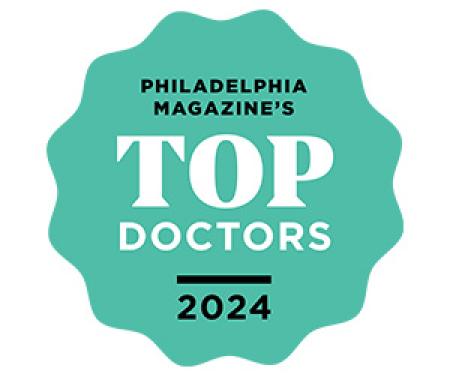





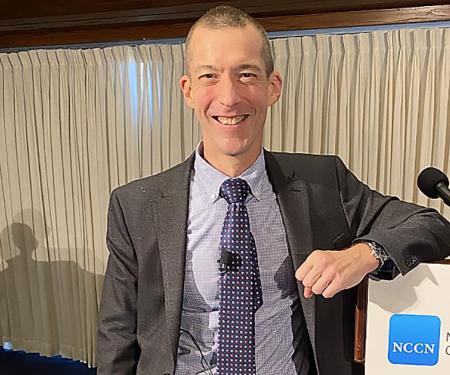

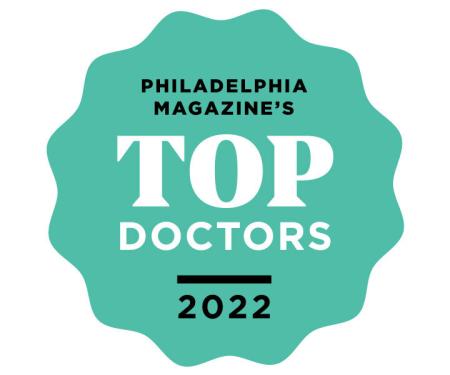
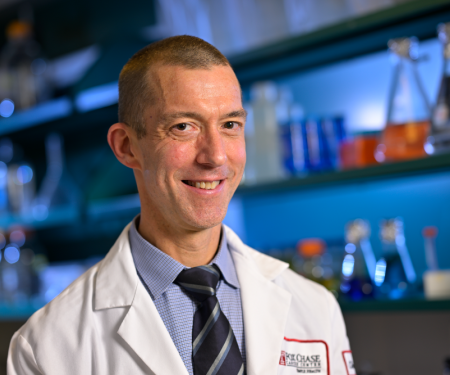
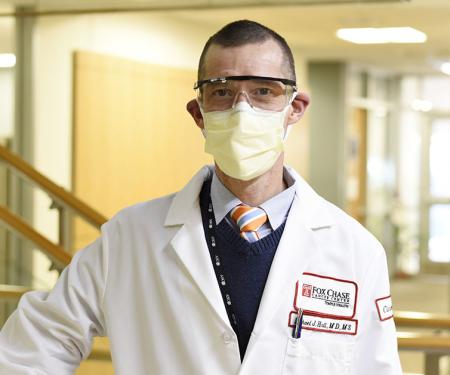



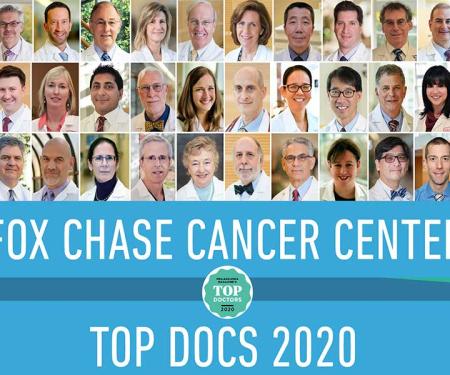





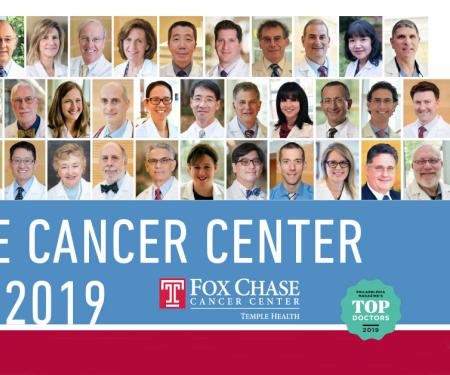



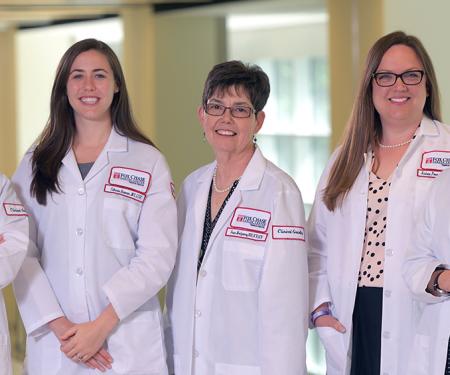



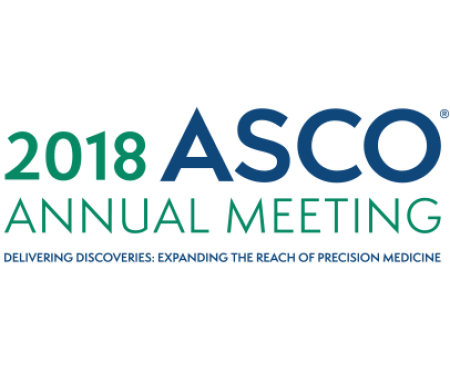




Patient comments
Dr. Hall is a great doctor with the understanding of my issues and always ready to help me.
[...] it was a very good session.
The experience was wonderful, and all of our questions were answered. The best part about the experience is the fact that it is ongoing. Cancer is ongoing and comes up in different ways and it is refreshing to have an organization as reputable as you are to come back to every few months.
They listen, they care and they know their business. I can't ask for anything more.
Dr. Hall suggested the next line of treatment along with his reasoning.